Stakeholders in Ogun have expressed mixed reactions in their appraisal of Nigeria’s 25 years of uninterrupted democratic governance.
The respondents, in separate interviews with the News Agency of Nigeria on Tuesday, identified the gains and challenges of the country’s democratic model and proffered solutions for improvement.
Chairman of Abeokuta branch of the Nigerian Bar Association (NBA), Bolarinwa Odeyale, in his reaction, said the major thing to be celebrated was the fact that the democratic rule had remained unbroken since 1999.
“The major thing we can point out for now is just that the ‘military boys’ are not at the helm of affairs and we are running the entire thing by ourselves. But I tell you, we are running it at a loss,” he said.
On the gains of the democratic rule, Odeyale noted that there had been peaceful transition of power through electoral processes in spite of the social, ethnic and religious diversities of the country.
The NBA chairman, who acknowledged the various judicial reforms and constitutional amendments that had been made since 1999, noted that the measures had contributed to the growth of the judiciary in the country.
He, however, noted that a lot still needed to be done to address corruption in the judiciary so as to enhance its integrity and help to deliver dividends of democracy to Nigerians.
“We need to strengthen our rule of law through judicial autonomy to ensure fairness in appointment of judges and quick dispensation of justice, among others,” he said.
Also contributing, the Secretary-General of Ogun Muslim Council, Alhaji Kamaldeen Akintunde, said the fact that Nigeria had experienced 25 years of uninterrupted democratic governance was worth celebrating.
According to Akintunde, Nigeria’s democracy has grown from being “nascent” to “developing”.
He noted that Nigeria had, in the last 25 years of democratic governance, witnessed a turn-around in infrastructure in some critical sectors.
“For example, the light rail and road infrastructure in the transportation sector is there, while education has also been revamped and the country can now boast of more public and private primary, secondary and tertiary institutions.
“The health system has also improved, notwithstanding the brain drain syndrome or the greener pasture seekers.
“Regrettably however, there is nothing to write home about in the power sector and agriculture, while insecurity and corruption remain the bane of our development,” he said.
On ways of sustaining democracy and making it fruitful in Nigeria, Akintunde called for strengthening of rule of law and practice of internal democracy by political parties.
“Opposition parties must be allowed to operate, as they have the potentials to engender growth and development.
“Citizens must also be law-abiding and eschew practices capable of undermining the peace, unity and progress of the country.
“Above all, election winners must fulfill their campaign or electoral promises in order to build trust among the people,” he said.
To the Minority Leader of Ogun House of Assembly, Hon. Lukman Adeleye, Nigeria’s 25 years of democratic rule is, by no means, an achievement.
“That Nigeria has been able to nurture its democracy, transiting from one democratic regime peacefully to another within the period, is worth celebrating,” he said.
The lawmaker, however, noted that the expectations of Nigerians were higher than what they got as dividends from the democratic rule.
“We still have a lot to do in terms of provision of infrastructure. We have a lot to do to better the economy, while, in terms of ability to really cater for the citizens, our political leaders have not done well.
“Today, food inflation is almost getting to 40 per cent. Our per capital income is one of the lowest. We have not done well in terms of dividends of democracy,” he said.
Adeleye noted that it was important for government to invest heavily in human capital development, as, according to him, “the greatest asset of any nation remains the people.”
He also stressed the need for increased local production, stable power supply and improved infrastructure for sustenance of democratic rule in Nigeria.
“That is why I am saying that the political class must do more; we must tackle poverty, unemployment as well as the infrastructural deficit.
“The political class should have the will to do the right thing, fighting corruption, building very strong institutions and ensuring that elections are conducted in a way that will reflect the true wishes of the people,” he said.
In his own submission, the National Vice-President, Committee for the Defence of Human Rights (CDHR), Yinka Folarin, said government’s inability to sustain good policies with the right drivers had hindered the progress of democratic system in the country.
Folarin explained that Nigerians had only enjoyed some constitutional freedom, with little participation in decision making process.
To enhance democratic practice in Nigeria, he said that people’s participation in governance must be prioritised while institutions must be built and strengthened.
“We must be patriotic and fight corruption holistically, if we are going to move forward,” he said.
Also, Dr Bayo Adeyemi, a Senior Lecturer in the Department of Political Science, Covenant University, Ota, noted that democracy in the last 25 years had delivered “marginal” dividends to Nigerians.
Adeyemi identified ICT, banking and manufacturing as some of the sectors which had experienced major transformation since Nigeria changed to democratic rule in 1999.
“Banking operations has moved from traditional practice where you have to go to the banking hall before carrying out any business transactions to a more advanced technology.
“The ICT industry has also been transformed to a more advanced digital technology while many industries had sprung up in the manufacturing sector,” he said.
The don, however, identified corruption as a major factor that had slowed down the progress of the country in spite of the transformation, adding that “the dividends are enjoyed by the select few.”
He called on governments at all levels to tackle corruption and embrace good governance in order to bring more dividends of democracy to the masses.
NAN

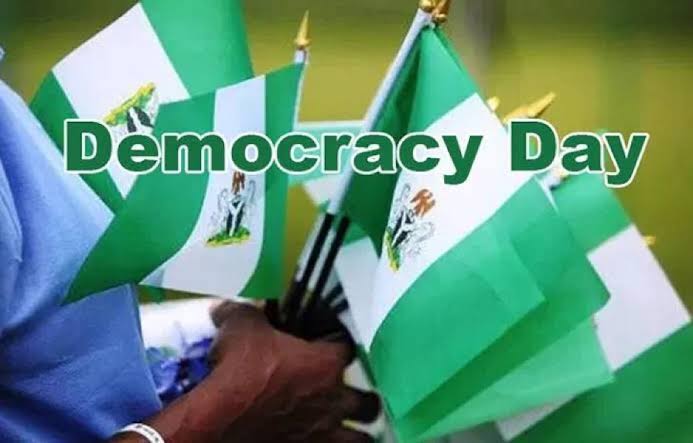
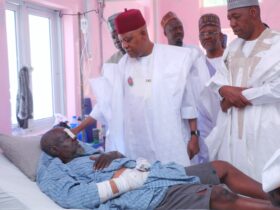



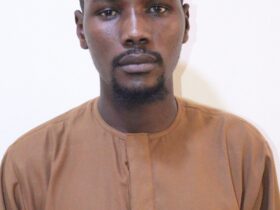
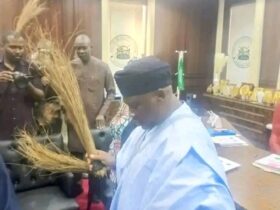
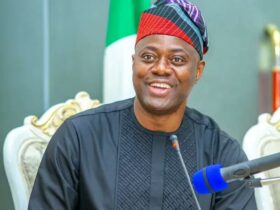

Leave a Reply